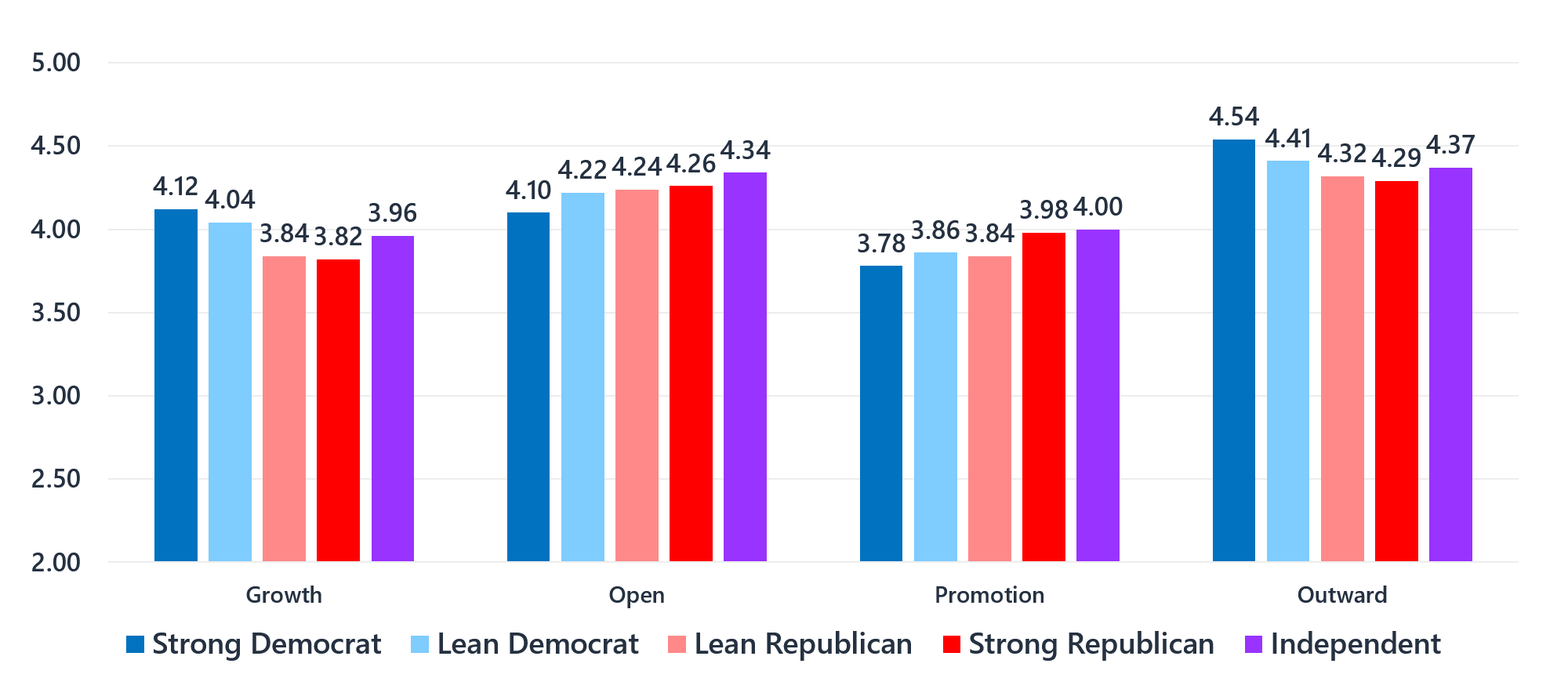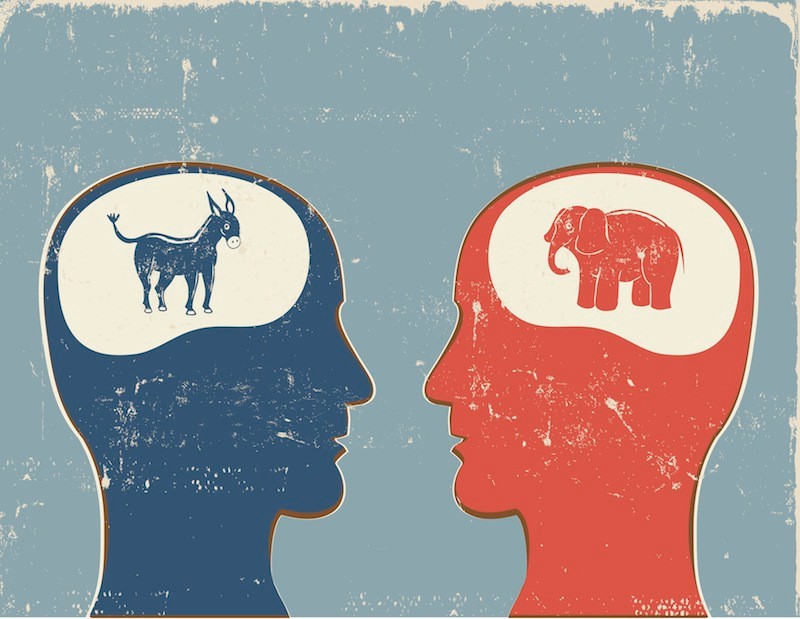I recently partnered with Aimpoint Research to investigate how mindsets might differ across different demographic profiles, including political affiliation, income level, gender, education level, generation, geographic region (in the United States).
I am finding the results quite interesting. In the next several articles, I will be sharing the results of this effort.
This week, I’ll start with a bang: How mindsets differ based upon political affiliation
Research Information
Our sample was designed to reflect the United States population at large. We ended with a sample of 587.
What I am presenting to you is the average mindset scores across different political affiliations. I was able to find unique differences across the political affiliations. To me, these differences are meaningful, but they ARE NOT technically statistically significant.
There are a couple of interrelated reasons why these results are not statistically significant. On one hand, the magnitude of the difference is not always large from a difference standpoint (e.g., .30 difference on a seven-point scale). On the other hand, our sample size is not large enough to determine that these differences are unlikely to be different across other samples of the same size.
From this, we can infer that while one group (e.g., Strong Democrat) may have a more positive mindset than another group (e.g., Strong Republican), we will find some Strong Republicans that have very positive mindsets and some Strong Democrats that have very negative mindsets.
Regardless, it is very interesting to see the differences.
Mindsets by Political Affiliation
Here are the results:

At a high level:
- There seems to be a pretty predictable trend either up or down as you go from Strong Democrat to Strong Republican
- Independents appear to be the group that is the most open-minded and most promotion-minded, but they fall in the middle of the pack for growth and outward mindsets
When it comes to the comparison between democrats and republicans:
- Democrats appear to be more growth-minded than republicans. This suggests that Democrats are more likely to believe that people can change their talents, abilities, and intelligence, which makes them more focused on learning and growing than on looking good.
- Republicans appear to be more open-minded than democrats. This suggests that Republicans are more likely to be willing to seek out new information that will help them to think more optimally. Stated differently, republicans seem to be more focused on thinking optimally, while democrats seem to be more focused on being right.
- Republicans appear to be more promotion-minded than democrats. This suggests that Republicans are more focused on reaching goals and creating solutions, whereas Democrats are more focused on avoiding problems and making sure things don’t go wrong.
- Democrats appear to be more outward-minded than republicans. This suggests that Democrats are more likely to see others as being people and want to lift them; whereas Republicans are more likely to want to get ahead, and as a result, more likely to see others as objects.
While these are very interesting findings, they are also generalities. These results DO NOT suggest, for example, that all Democrats are growth-minded and all Republicans are fixed-minded. But, there does appear that one’s political beliefs and mindsets are related.
If you want to take the mindset assessment for yourself, you can take it here: FREE Personal Mindset Assessment


